My movement is rooted in oneness: Nawshaba
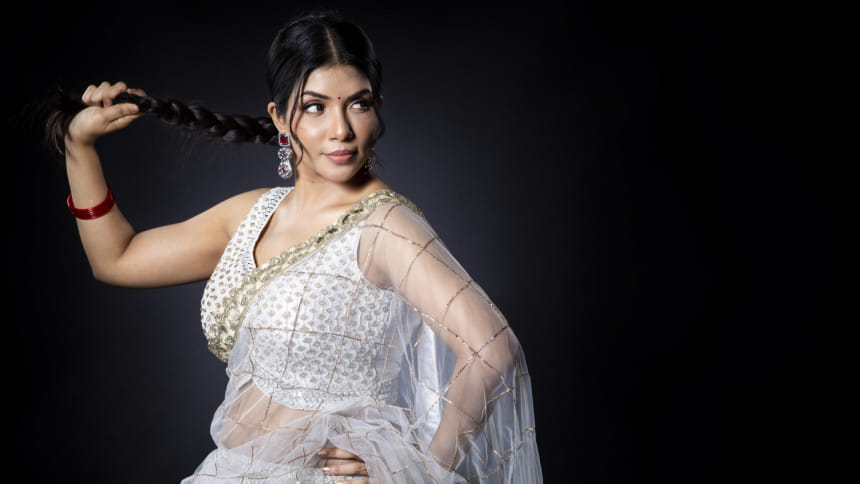
A 2018 nightmare– that often haunts Quazi Nawshaba Ahmed– was to some extent brought to ease on August 5. On the path to creating a discrimination-free nation, Nawshaba believes that the state is now prepared to hear the uncensored story of her journey that completely reformed her into a new person.
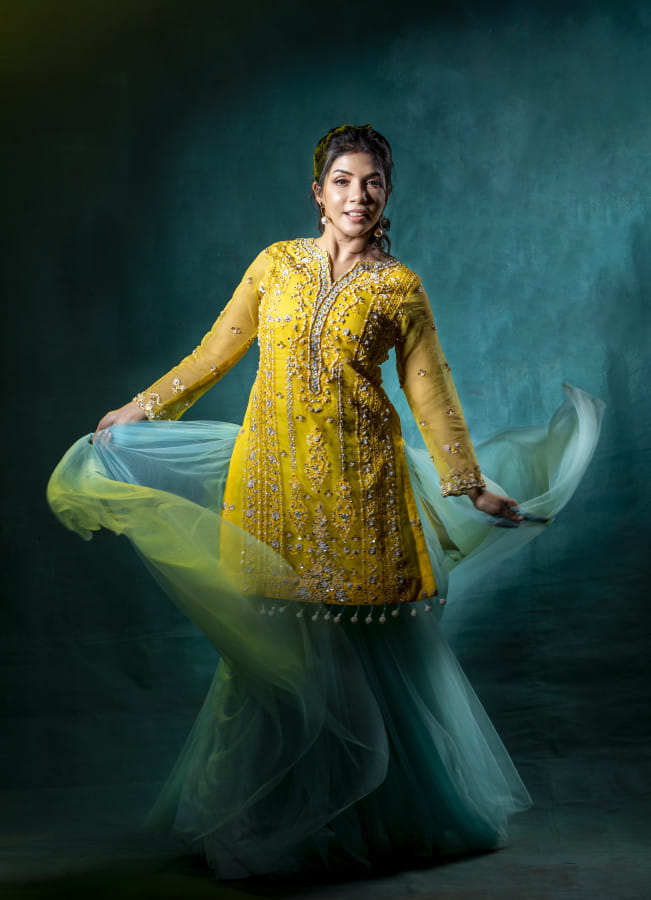
On August 4, 2018, Nawshaba was detained by RAB from a shooting spot in Uttara. Under Section 57 of the ICT Act, she was charged with spreading rumours on social media about the student protest for the demand for road safety. It is to be noted that she was not the only one who was charged under that act. Photographer Shahidul Alam, lawyer Imtiaz Mahmood, journalist Kajol, and many other activists were charged under this act for speaking against the former AL-led government.
After being sent to the lockup, Nawshaba was denied bail and granted several days of remands as well. She was released from Kashimpur Central Jail on August 21, 2018, considering her health condition. Her case is still active.
We talk to this forgotten hero, arguably one of the first celebrities to speak out against the former regime.
What instigated you to speak out on this uprising, having been persecuted in 2018?
The first time I discovered how deeply students were hurt by being called 'Razakars' (war criminals), it struck me to the core. It brought back the pain I felt in 2018 when I was constantly branded a traitor, a 'Razakar'.
It took me nearly a year to recover from the trauma and the relentless self-doubt, haunted by the belief that I had made a costly mistake. However, in that one reaction from the students, I found validation—confirmation that I wasn't wrong, just as my father had reassured me until his passing.
My 11-year-old daughter, who is aware of the situation, was looking up to me. How could I not be alert to what was happening? Though I wasn't in the front row during the protests, I still showed up most days, quietly blending into the back, hiding my identity.
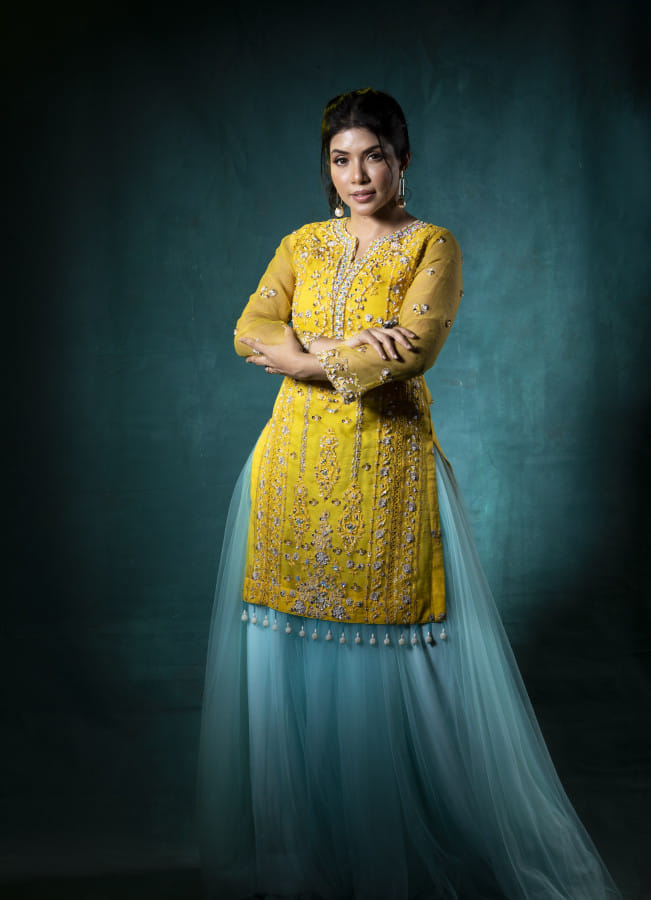
Could you please open up about what you went through since August 4, 2018?
I was actively participating in the peaceful protests, because I believed the students' demands were justified. Even the day before, I joined them on the streets. On August 4, while I was at the shooting location, a few protesters called me with alarming news—students were being brutally attacked. They sent me photos and video clips of the attacks and repeatedly sought my help. In a state of panic, I reached out to a police officer several times to confirm; but when I couldn't get any clear answer, my anxiety grew, and I thought of asking for help.
I never imagined that my message would mark me as a traitor. I had no idea it would brand me as a war criminal.
My Facebook account was hacked within 13 minutes following the live broadcast and I had no clue what was going on with my account. I was flooded with calls—hundreds, mostly threats. Many urged me to delete the video. My father was the sole voice of support, calling to say, 'I'm proud of you'. He also foresaw the trouble I might face soon, warning, 'You will be in danger,' and asked if I wanted to leave the shooting location. I told him I couldn't abandon my work until it was done. He respected my decision and waited until I finished. By then, a group of officers in plainclothes arrived and forcibly took me away.
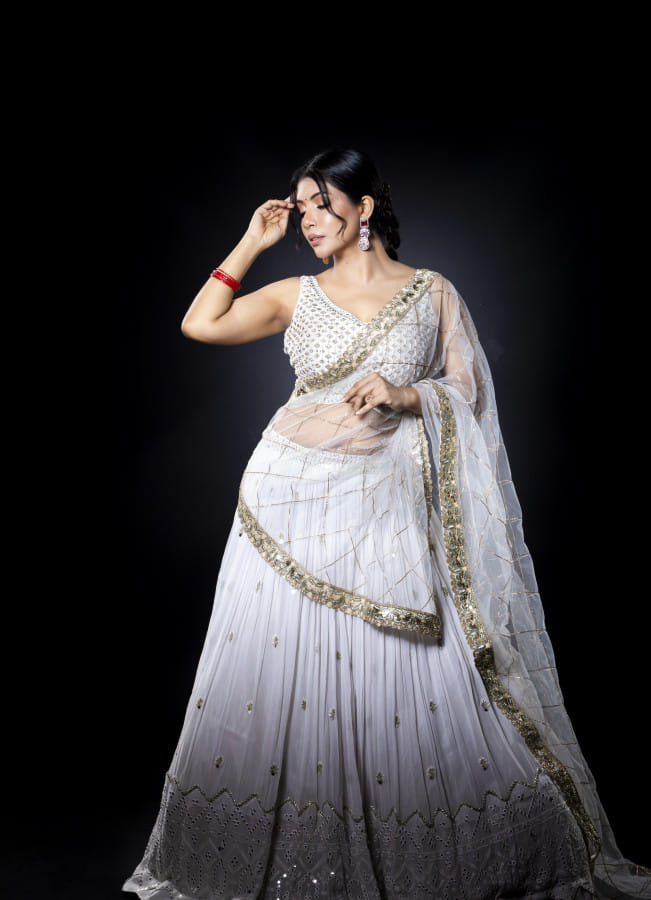
Recently, in an interview, you mentioned being taken to Aynaghor (The Mirror House), where the disappeared were kept during the former government's regime.
I have never mentioned this to any media! When I was taken from the shooting location, they blindfolded me, and throughout the entire ordeal, I was kept in the dark about my surroundings. I also want to set the record straight: since that interview, many news outlets have reported on my situation without reaching out to me first. This is completely unethical, and the information they've shared is inaccurate. I have not disclosed any personal details on record yet.
After you were released on bail, your life became even more challenging. Could you elaborate on that?
My father was my steadfast support, and with his passing, my daughter has taken on that role. When I returned, my parents faced the harsh criticism that I had tarnished our family's reputation. They heard that, despite my father's background as an army officer, I had failed entirely and brought shame upon us.
During that period, I was so traumatised that I couldn't understand how I could be accused of such things. I've always strived to serve my country to the best of my ability. My father's stories about 1952, 1969, 1971, and Bangabandhu inspired me deeply throughout my life.
I was ousted from the roles I had been promised and blacklisted by many. It's a harsh reality that only a few, including some journalists, stood by me during that crisis. Their reports were pivotal in helping me secure bail quickly—at least, that's how I see it. I don't need to attend the court hearings now as my lawyer handles it.
Now that many stories are coming to light and you're willing to open up, how do you feel?
Given the many lives lost in the recent mass uprising, let us honour their sacrifices by steadfastly pursuing the vision of building a new and better country.
At the same time, seeing people vandalise Bangabandhu's statue, set fire to his house, and destroy monuments broke my heart. My movement is rooted in oneness, love, and peace. The profound transformation I've undergone over the past six years drives me to pursue peace in the face of any form of anarchy. While many may mock me, my vision remains resolute and undeterred.

 For all latest news, follow The Daily Star's Google News channel.
For all latest news, follow The Daily Star's Google News channel. 




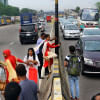
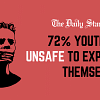



Comments